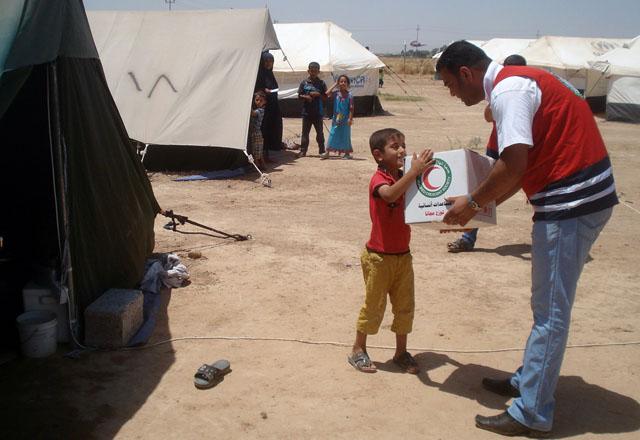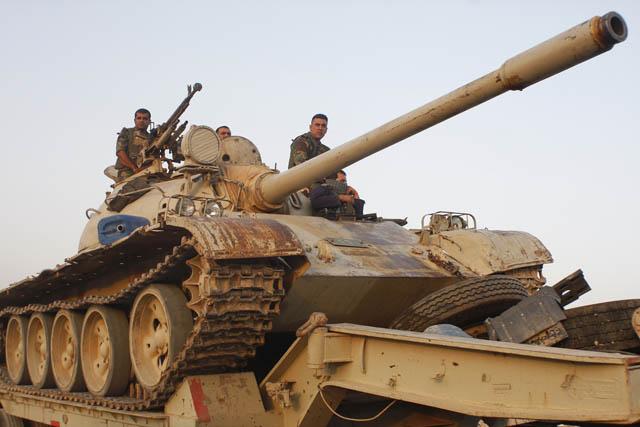You are here
Maliki emerges atop Iraq poll in bid to remain PM
By AFP - May 19,2014 - Last updated at May 19,2014
BAGHDAD — Iraqi Prime Minister Nouri Maliki won by far the most seats in parliamentary elections, results showed Monday, putting him in the driver’s seat to retain his post for a third term.
Despite the strong performance, Maliki’s State of Law alliance fell short of an overall majority, meaning he will have to court rivals from across the communal spectrum, some of whom have sharply criticised Maliki and refused to countenance his bid for reelection.
Results from the election commission showed State of Law garnered 92 out of 328 parliamentary seats, with the incumbent himself winning more than 721,000 personal votes.
Both were by far the highest such figures from the April 30 vote — the first since US troops withdrew from Iraq at the end of 201 — and marked significant increases compared to Maliki’s performance in the last general election in 2010.
Maliki’s bloc won 30 seats in Baghdad alone, and came first in 10 out of 18 provinces overall, all of them in the premier’s traditional heartland in the Shiite-majority south of the country.
His main rivals all finished with between 19 and 29 seats overall, according to an AFP tally of election commission results.
The results announced Monday can still be challenged and could change before they are finally certified by the country’s supreme court.
Both the US embassy in Baghdad and the UN mission to Iraq welcomed the results, with Washington saying it was “a testament to the courage and resilience of the Iraqi people, and another milestone in the democratic development of Iraq”.
Iraq’s political parties have for weeks been meeting and manoeuvring as they seek to build post-election alliances, but the formation of a new government is still expected to take several months.
As in previous elections, the main blocs are expected to agree on an encompassing package that ensures the prime minister, president and parliament speaker are all selected together.
Under a de facto agreement established in recent years, Iraq’s prime minister is a Shiite Arab, the president is a Kurd and the speaker of parliament is a Sunni Arab.
Violence and opposition
Following Iraq’s last elections, it took nine months to form a government as parties engaged in protracted horse-trading and several blocs tried to oppose Maliki’s bid for re-election.
Voters often complain of poor electricity and sewerage services, rampant corruption, high unemployment and a litany of other concerns, but the monthlong campaign preceding the vote concentrated on Maliki’s bid for a third term.
Maliki’s critics accuse him of consolidating power, particularly within the security forces, and blame him for a yearlong deterioration in security, and say there has not been enough improvement in the quality of life.
The election and its aftermath came amid a surge in violence that has killed more than 3,500 people this year, fuelling fears that Iraq could be slipping back into the all-out conflict that cost tens of thousands of lives in 2006 and 2007.
In particular, the 63-year-old faces strong and vocal opposition in the Sunni-dominated west and the Kurdish north, with rivals there insisting they will not agree to a third term.
Maliki, who has been in charge since 2006, blames external factors such as the war in neighbouring Syria for the surge in unrest, and says his so-called partners in government snipe at him in public and block his legislative efforts in parliament.
The run-up to the election was plagued by attacks on candidates and campaign rallies, as well as allegations of malpractice that apparently contributed to lower turnout in areas populated by disgruntled minority Sunnis.
More than 9,000 candidates ran for the 328 seats in parliament, with about 62 per cent of eligible voters casting ballots.
Related Articles
Iraq’s parliament failed on Sunday to break a political deadlock that is holding up the formation of a new government to tackle an Islamist-led insurgency raging less than 80km from Baghdad.
Iraq’s election commission said Saturday the results from last month’s general election would finally be released within days as nationwide attacks pushed this year’s death toll to more than 3,500.
Iraqi Prime Minister Nouri Al Maliki’s coalition should withdraw its support for his bid for a third term and pick another candidate, Shiite Muslim cleric Moqtada Al Sadr urged, amid parliamentary deadlock over the formation of a new government.













